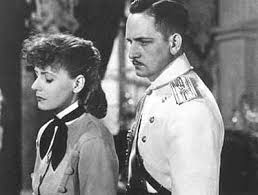This is a guest review written by Alex, who can normally be found lurking in the shadow banking system.....
I feel roughly the same way about Capitalism that Churchill felt about Democracy; “it’s the worst form of [economic system] except all the others that have been tried.” In fact, I wouldn’t be writing for this aptly titled blog if I didn’t feel some sympathy for what Al Capone called “the legitimate racket of the ruling class”, if only because I fear the alternative. Furthermore history, albeit always written by the winners, is on my side.
It’s fair to say that Capitalism hasn’t done well out of the past few years. Its excesses are much more likely to be debated and analysed than its successes.
Narrated by Matt Damon, Inside Job aims to do just that, with a methodical and structured post mortem on the Credit Boom and the global recession which has followed. The interviewers are, overall, incisive and ferocious in their questioning of an impressive cadre of financiers (the internecine tribes which have emerged from the Credit Crunch; “the ones who were proved right” and “those who were wrong but are still rich”), academics, regulators, politicians and investors.
Despite this fine premise, Inside Job is often pantomime-like: France’s Finance Minister Christine Lagarde is vitriolic in her criticism of those evil bankers (the producers omit to mention that she herself is a former corporate lawyer for an Anglo-US law firm), and Elliott Spitzer, former New York State Attorney General and Governor, offers similarly stern invective – “hooray!” Lloyd Blankfein (current CEO of Goldman Sachs) appears – “boo!”, we are almost invited to holler.
Ironically though, often the most damning evidence came from the bankers themselves and their shills. One could wile away hours on Youtube watching film of Goldman’s executives crucifying themselves in front of the US Senate Panel. The film-makers have merely hand-picked some of the edited highlights.
There are some surprising critics; George Soros for example, billionaire financier and a great example of a speculator if ever there was one after he made millions, and cemented his reputation in the investment community, betting against Sterling. The documentary doesn’t seem bothered with these nuances.
Nevertheless there are several genuinely salient and insightful points – one being that this generation is probably the first time that Americans have been both less well-educated and less well-off than their parents.
The left guard give away their limited knowledge of finance, and it’s not just that they mis-pronounce the names of large and well-known investment banks whilst they describe their folly and hubris. Was pronouncing Lehman Brothers, “layman Brothers” a Freudian slip? One interviewer confidently asserts that derivatives were created in the early 1990’s whereas farmers in Illinois were using futures contracts to hedge their production over a hundred years before that decade. Again and again I found myself thinking “if you’re going to tell a story, tell it right!”.
Other documentaries in a similar vein include Michael Moore’s “Capitalism, a Love Story” and the excellent if lengthy “The Corporation” by Canada’s Mark Achbar. The former was more sensationalist, and therefore entertaining, and Achbar’s was more thorough. Since this has been done before, I was a little disappointed that Inside Job didn’t build on or add anything new to the body of similar work.
From the audience’s reaction throughout I sensed that, politically, I was in a minority of one in the screening of this well-made but flawed documentary, and yet overhearing two womens’ conversation on the way out I couldn’t help thinking that deep down the audience understood the limited value in demonising bankers. Despite Inside Job’s propagandising two-hour polemic, everyone knows that the money men, albeit whilst extracting a heavy price, were only the enablers for you and I to buy our dream house, max out our credit card for that luxury holiday we couldn’t afford or otherwise sink deeper in hock. Maybe somebody should have told the film-makers this.
I’ll leave you with another quote from The British Bulldog:
“The inherent vice of capitalism is the unequal sharing of blessings; the inherent virtue of socialism is the equal sharing of miseries”.
INSIDE JOB played Cannes, Toronto and London 2010, and was released earlier this year in Belgium, Portugal, the US and France. It opens in the Netherlands on December 2nd and in the UK on February 18th 2011.










